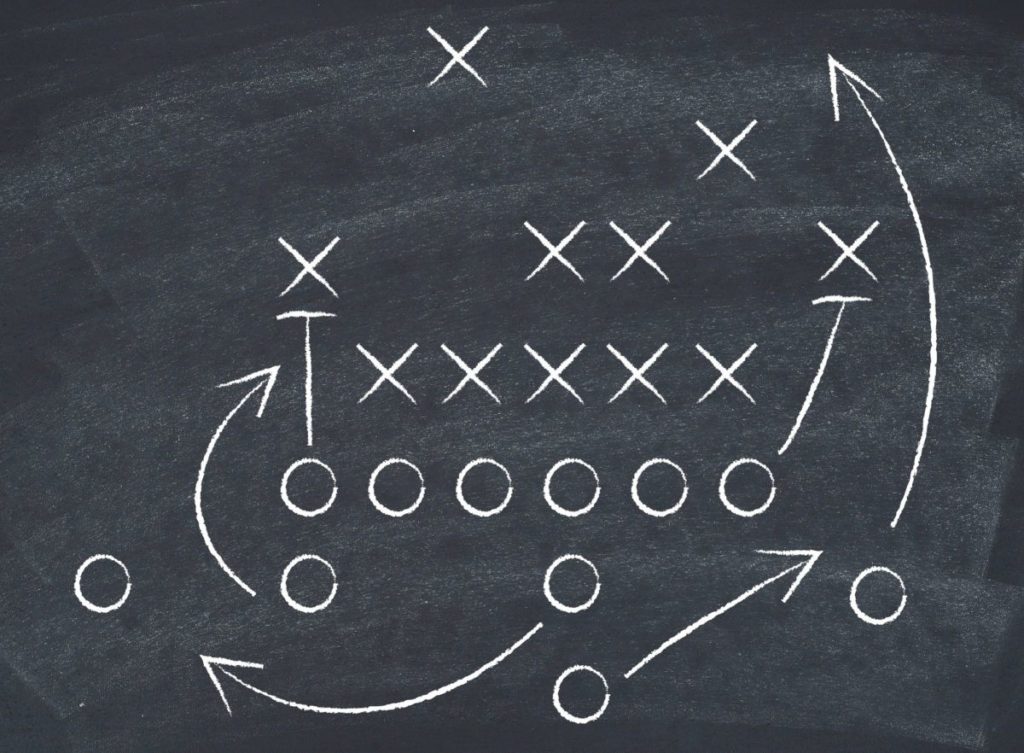The great George Carlin did a classic routine about the differences between baseball and football that shows a comic at the top of his game without using any of the seven words you can’t say on TV.
Inspired by Carlin, I thought it would be interesting to compare the championships of the top two American sports from a project management perspective.
To fully appreciate this piece, imagine the bullet points being read by George Carlin.
Practice Beats Uncertainty
- In football, the championship is a single game played at a time and location determined years in advance.
- In baseball, the championship might be four, five, six, or seven games and the locations are determined just a week in advance.
Imagine the project management challenge of organizing an event with tens of thousands of spectators, most coming from out of town.
Flights and hotels must be booked; camera crews, food vendors, ticket takers, and security staff arranged. Now imagine that the event may or may not happen, and you might not know until the day before.
Running the World Series has an incredible amount of uncertainty.
I can’t imagine how difficult it is to run the World Series. The only thing that makes it possible is that the hosting team has lots of practice. The team (including the food vendors, ticket takers, and assorted staff) have practiced hosting over the 80 home games of the regular season, plus the post-season games. No one is being asked to do something new. It’s just that more people are watching on TV.
We’re used to thinking about the scope-cost-schedule triangle, but there’s also a complex-uncertain-novel triangle.
Imagine you’ve built a brand-new baseball park, and the first game to be played there is the World Series! You have complexity and uncertainty (like every other World Series game), but also have something new.
This is why running the Olympics is so hard. There is an enormous amount of complexity coupled with the uncertainty of every large or outdoor event. Plus, a majority of the people working the event have never actually attended the Olympics, much less worked at one. The Superbowl is a walk-in-the-park by comparison.
Plan for Every Challenge
- In football, the game lasts between three and four hours.
- In baseball, the game last between two and a half and five and a half hours.
The uncertainty in baseball isn’t just how where and when, but how long. Imagine telling your staff they might get off work at 10 p.m.… or maybe 1 a.m. The game could run so late that the transit system might close, so you need to have a mitigation in place to deal with that.
But again, that’s just normal for baseball. The mitigations needed for a long game need to be in place for every game. Even the television networks are prepared for a late game and schedules reruns or the news afterwards, so it’s OK if the game runs late.
Field Your Team Strategically
- In football, you put your best players on the field for every game.
- In baseball, your best pitcher might only play 20 percent of the games.
The Super Bowl is like a single project company. You put your best team on the field. The World Series is like a matrix environment where you’re building seven teams that can succeed at least four times. Several of these projects may never launch, but you need a team ready for them, regardless.
Building a team from the resources available is often a challenge. Paraphrasing Donald Rumsfeld, you launch the project with the team you have, not the team you want. Just like you can’t start every game with your star pitcher, you can’t include your best contributors in every project.
Say What You’ll Do; Do What You Say
- In football, you play in any weather.
- In baseball, the game can be called due to weather.
In any project where weather is a factor (e.g., construction, transportation, outdoor events), it always adds uncertainty and requires mitigation plans. Football and baseball deal with this uncertainty very differently.
Baseball cancels the game, which means people go home and come back another day or ask for refunds. This complicates everyone’s schedules and can lead to unhappy spectators. Football just plays on, so you need to have plans for the athletes and spectators in cold weather. When you see fans clutching their thermoses, wrapped in snow covered blankets, you’ve got to imagine that the concession stands are selling a lot more coffee and blankets. If they run out, there could be a riot.
Both approaches are valid, and spectators understand the consequences of bad weather. When running projects, you need to have mitigation plans that everyone understands. If you expect to have the game called due to rain, you’re not going to bring foul weather gear.
Set Everyone Up for Success
- In football, the rules are the same for the championship as the rest of the games.
- In baseball, sometimes the pitcher goes to bat and sometimes he doesn’t.
Pity the National League player who is facing a MLB pitcher for the first time at what is the highest stake game he’s ever played. Everyone else is doing the job they do all year, just with extra pressure and attention. He’s doing something he hasn’t done in a game since college.
Sometimes when we’re running a project, we need a contributor to step out of their comfort zone. Maybe they need to make a presentation to a client or executive. Maybe resolve a challenge that requires them to stretch their technical skills. Maybe they’re a meat and potatoes kind of person who needs to travel to China.
We as project managers need to recognize the challenge, acknowledge it, and set the contributor up for success. Metaphorically, we need to have some serious batting practice with a real pitcher throwing real fastballs.
Don’t Just Chase the Ball; Think Strategically
- In Football, some people watch the championship just for the ads.
- In Baseball, the ads during the championship aren’t particularly interesting.
People focus more on things that last for three hours than something that lasts 30 hours. We are easily distracted, more so now in the age of smart phones. Project managers and our stakeholders are no different. It’s easy to get distracted and focusing on what’s in front of us like a herd of 5-year-old soccer players chasing the ball.. But we also need to pull back and look at the big picture.
So, sit back, crack open an American macro-brew, grab some chips and salsa, join with some friends, and enjoy the Super Bowl. Just appreciate that in addition to some world class athletes, the game is brought to you by some hardworking project managers.








